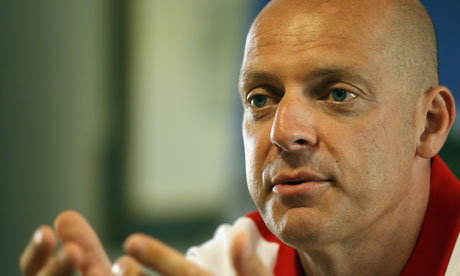“If you broke down everything you could think of that goes into riding a bike, and then improved it by one percent, you will get a significant increase when you put them all together.”

That was Sir Dave Brailsford, the former performance director of British Cycling describing the philosophy of marginal gains. It’s an approach that took British Cycling from nowhere, to world superpower in 11 years. Remarkable to say the least.
It also describes the Muscle Activation Techniques philosophy and why it is of such value to endurance athletes.
Let’s look at a practical example.
Imagine for a moment that you have a limit in how far your hip rotates inwards (hip internal rotation) and that you are a runner.
Where there is a limit in motion, your body has to come up with a strategy to work around that limit. Typically for runners that means their foot and ankle will work harder to compensate.
The average runner will take around a 1000 strides to complete a mile. That means each foot will strike the ground around 500 times. So in just 1 mile there are 500 opportunities to improve your performance and reduce the stress on your lower leg.
If you begin to extrapolate this number to longer distances, you will see the effect of this one small change magnified. Presuming you strike the ground an equal number of times per mile for a marathon, that’s over 13,000 opportunities to improve your performance and reduce both your time and your risk of injury.
Summary.
MAT is about optimising your muscular system down to the smallest detail to make these gains a reality.
Endurance events provide such a big opportunity because of their repetitive nature. The more repetitive the movement, the greater the opportunity for improvement.